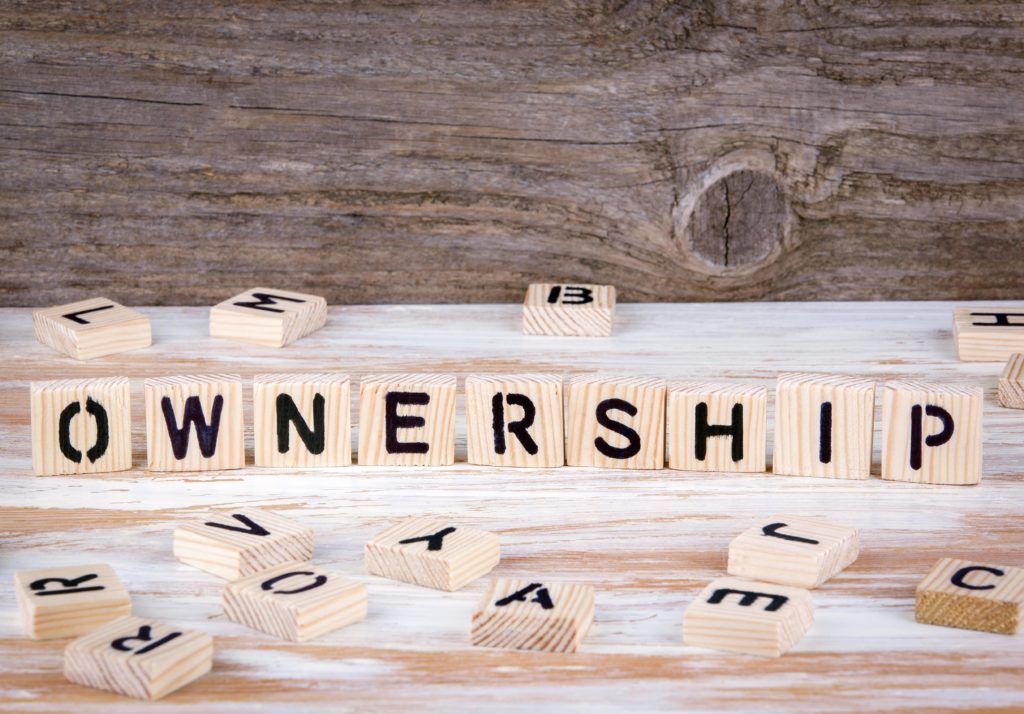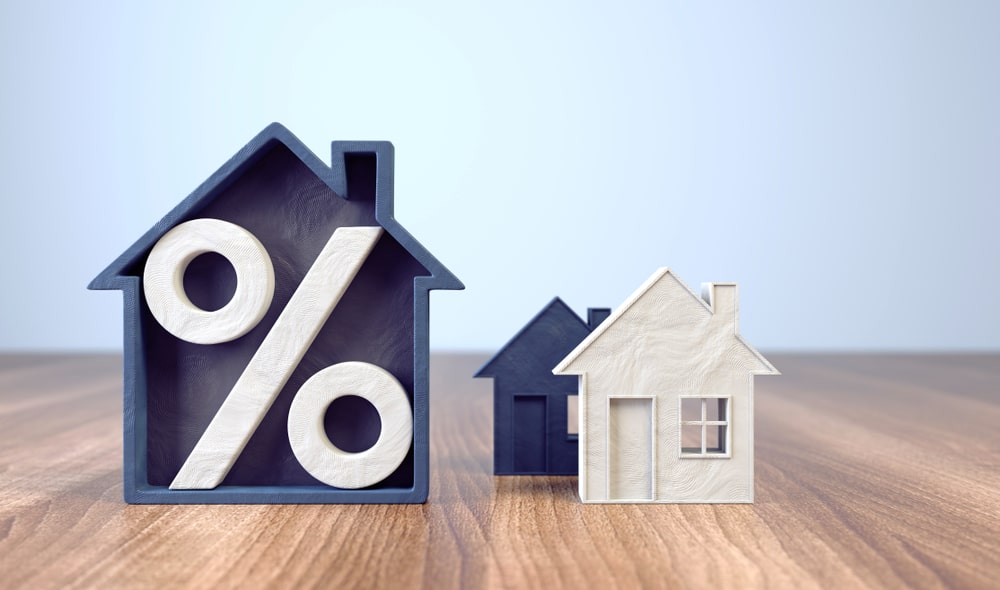
When (and When Not) to Leverage a Cash Out Refinance
 10 min read
10 min read
 10 min read
10 min read
|
Refinance
Home values have soared during the pandemic. As of June, average home prices across the country had risen a record 13.2% over the prior year, and although the market has slowed a bit, low inventory and interest rates continue to drive prices higher.
While the meteoric rise in the value of homes isn’t ideal for prospective buyers, it’s great for those who already own a home. Homeowners gained an estimated $2.9 trillion in equity during the second quarter of 2021 alone. As a result, many homeowners are sitting on an untapped pile of cash.
The good news is that you have options available to utilize that home equity, one of which is a cash out refinance.
A cash out refinance allows you to tap into some of that home equity by restructuring your mortgage, which you can then use for consolidating debt, home renovations, or even as a down payment for an investment property.
While it’s important to consider your options carefully and to wisely use the money from a cash out refinance (after all, it isn’t free money), taking advantage of your home’s equity to improve your financial situation and build wealth could pay serious dividends down the road.
Let’s look at what a cash out refinance is and some situations where you should (and should not) leverage your home’s equity.
What Is a Cash Out Refinance?
A cash out refinance leverages your home’s equity. It’s restructuring your mortgage to a higher amount to access the difference between your current mortgage and the new one in cash.
Thus, instead of having to sell your home to access any equity you’ve built, a cash out refinance allows you to borrow that equity from a lender.
The money received from a cash out refinance can be used for virtually any purpose and is paid back in the form of a new monthly mortgage payment, which will depend on the new mortgage terms and amount.
How Does a Cash Out Refinance Work?
The process for a cash out refinance is very similar to a regular refinancing of your mortgage.
There are generally two reasons people choose to refinance: they want to lower their interest rate or their loan term, or both. Thus, with a regular refinance, you replace your current mortgage with a new one for the same amount but with new interest rates and loan terms.
The process for a cash out refinance is essentially the same, except in this case, you replace your current mortgage with a higher loan amount depending on the amount of money you want to take out.
For example, let’s say you have a mortgage balance of $200,000, and your home is valued at $400,000. In this case, you have $200,000 in equity sitting in your home. Now, let’s say you want to do a kitchen renovation that will cost $40,000.
In this scenario, you could do a cash out refinance to access the equity in your home to pay for the kitchen remodel. Your new loan balance would be $240,000, and you would have a new interest rate and loan term. You would then begin making payments based on these new terms.
Instead of a mortgage and another loan for the remodel, you’ve wrapped it all into one loan with a cash out refinance. In this case, you’ve taken advantage of your home’s equity to increase the value of your home and improve your day-to-day life.
Luckily, the process for applying and approval for a cash out refinance will be very similar to when you took out your initial mortgage. You’ll want to shop around to find the best options for lenders, submit an application with necessary documents, and wait for approval. Once approved, you’ll need to pay for an appraisal of your home and closing costs, just like you did with your mortgage.
Furthermore, the same metrics will factor into your approval and the loan terms offered, namely, your credit score, employment, and debt to income ratio.
Now that you know the basics of a cash out refinance let’s dive into some more specific questions you might have.
How Much Can I Access With a Cash Out Refinance?
The amount of money you’ll be able to access with a cash out refinance will depend on your current mortgage amount and how much your home is worth.
It’s important to know that you won’t be able to cash out the entire difference between your home’s value and the balance on your mortgage, but rather a percentage. Most lenders will allow you to borrow up to 80% of your home’s loan to value ratio (the difference between what it’s worth and what you owe).
Lenders will generally only let you borrow up to 80% of the home-to-value ratio to safeguard their money, similar to how lenders see a down payment. Having a buffer of 20% equity remaining lowers the risk of the lender not being able to recoup their money if you default on the mortgage. This is because it’s unlikely the home value will fall 20%.
For example, if your home is worth $300,000, you can have a total of up to $240,000 in loans against the property, which would be 80%.
Using the 80% loan to value ratio as a rough estimate, you can get an idea of the money you may be able to access with a cash out refinance.
One important exception to this rule is VA loans, which may allow you to access the full amount of your home equity.
Regardless, how much cash you get in hand depends on the amount of your first mortgage, so the lower it is, the more cash you’re likely to be able to access.
What Are the Requirements to Qualify for a Cash Out Refinance?
While each lender will have its own requirements for obtaining a cash out refinance and for setting rates, there are some generalities you can use to assess whether or not you might qualify.
In general, those looking to do a cash out refinance will need a credit score of at least 620 and a debt-to-income ratio of less than 50%. You’ll also need to demonstrate stable income (although no general income ranges are required) and have equity in your home.
How Long Does a Cash Out Refinance Take?
The timeframe for completing a cash out refinance will be similar to your initial mortgage.
You can speed things along by having your necessary documentation ready, and unlike when buying a home, you don’t have to wait for the seller. Still, the average cash out refi takes 45 to 60 days from start to finish.
Are Cash Out Refinance Rates Higher?
Intuitively, you may think that cash out refinance rates would be much higher, but in reality, they typically aren’t much more than regular refinance rates. While cash out refinance rates are usually slightly higher because they are considered higher risk, they aren’t so high that they aren’t worth looking into.
As with any loan, those with better personal finance metrics will be offered the best rates. This means having a very good credit score (740 or higher), a low debt-to-income ratio, and a stable income.
It’s also important to remember that the going rate for interest on loans is constantly changing. With historically low mortgage rates over the past few years, if you’ve owned your home for five or more years, interest rates are likely lower now than when you purchased.
What Are the Fees With a Cash Out Refinance?
As with a traditional mortgage, you will need to pay closing costs to execute a cash out refinance.
On average, closing costs for a cash out refinance will be from 2-5% of the new mortgage amount, with the average amount being $4,345.
Closing costs include appraisal and loan origination fees, among other things. Ask your lender for a breakdown of the fees involved at closing so you can get a better idea of what those costs entail and what they are for.
Is a Cash Out Refinance Taxable?
You may be wondering if the money from a cash out refinance is taxable. This line of thinking makes sense considering you are tapping into your home equity.
However, because you are borrowing the equity from a lender (instead of receiving the money from a sale), the appreciation you are utilizing is not counted as income and, therefore, not taxable.
When to Leverage a Cash Out Refinance
There are several great reasons to utilize a cash out refinance. Here are some ways to put the funds from a cash out refinance to good use.
Home Renovations That Add Value to the Home
Another great way to take advantage of your home equity with a cash out refinance is by reinvesting in your home.
Home improvements that add value to your home payoff by further increasing equity and netting you a bigger profit down the line when/if you sell your home. You’ll also improve your quality of life with newer and/or bigger spaces.
Improvements that add the most value to your home include renovating kitchens and bathrooms, adding space, increasing curb appeal, and taking care of home maintenance that keeps your property safe and in good shape.
Investments
Another reason you may want to utilize your home equity is for investment purposes.
Many use cash out refinances to acquire the funds for down payments on investment properties. With relatively low interest rates and the potential to have another make payments on your investment for you through rental income, using home equity to build wealth through rentals is a great way to utilize home equity.
Aside from investments in real estate, some use cash out refinances to procure funds to invest in retirement accounts or other investments. While there is a risk to borrowing money to invest, the average stock market returns have been about 10% over the last century before inflation.
If the cash out refinance rate is low enough, and you want some extra money to boost your retirement savings, utilizing home equity may make sense.
College Tuition
Another possibility for using home equity is for college tuition.
With the average cost coming in at $10,000 a year for in-state public colleges and increasing from there, using a cash out refinance to fund your child’s education might make sense depending on the interest rates.
Currently, student loan rates aren’t significantly higher than cash out refinance rates, but even a few percentage points can make a big difference depending on the loan amount.
Compare cash out refinance rates with student loan rates for your situation and see if the numbers make sense. Especially if you also have high-interest debt or other loans that you could consolidate, using a cash out refinance to roll everything into one and fund your child’s education may make sense.
When You Should Not Leverage a Cash Out Refinance
Each person and situation is unique, and there is no hard-and-fast rule for times when you absolutely shouldn’t dip into your home equity. It’s your money, and no one can tell you how you need to use it.
Having said that, there are some general rules of thumb and considerations you should take into account when weighing whether to pursue a cash out refinance.
In general, it is advisable to avoid taking on more debt unless you can get a good return on your investment or save money. The examples in the previous section all discussed scenarios in which you could potentially get a greater return than the money being paid in interest, acquire another asset (investment property) for little to no out-of-pocket costs, or save significant money.
In all of these examples, you come out on top by taking on the added debt (via a higher mortgage) that a cash out refinance entails.
While it may be tempting to access home equity to fund experiences or things, you have to carefully assess whether or not those purchases are worth taking on more debt. Remember, a cash out refinance is borrowing your equity from a lender in the form of a loan, not free money.
A few instances where leveraging a cash out refinance may not be advisable include:
- Paying for a wedding
- Funding a vacation
- Purchasing unproven or volatile assets like cryptocurrency
- Buying a depreciating asset like a car
Whatever you choose to utilize a cash out refinance for, make sure you make good use of any funds you access.
Is a Cash Out Refinance a Good Idea?
Is a cash out refinance right for you? You can probably tell by now that the answer depends on several factors.
While it’s your right to use your home equity for whatever you want, it’s wise to avoid taking on more debt unless that debt allows you to save money or build wealth.
Some great reasons to consider utilizing a cash out refinance include consolidating high-interest debt, making home improvements, investing, and funding a college education.
You’ve worked hard to buy your home and to maintain it. So why not use that hard-earned home equity to improve your finances further?
Contact our team to learn more.
Disclaimer: Real Genius is not a tax expert or financial advisor. Contact your tax or financial professional for advice on how to handle debt, taxes or other financial needs.
Sources:
https://www.cnbc.com/2021/06/16/typical-us-home-price-up-record-13point2percent-compared-to-last-year.html
https://www.fool.com/the-ascent/mortgages/articles/homeowners-just-gained-29-trillion-in-equity-heres-what-you-can-do-with-yours/
https://themortgagereports.com/24616/va-cash-out-refinance-guidelines-requirements-mortgage-rates
https://www.credible.com/blog/mortgages/cash-out-refinancing/
https://www.newrez.com/blog/refinance/cash-out-refinance-faqs/
https://www.marketwatch.com/story/should-you-do-a-cash-out-refinance-the-pros-and-cons-2019-10-23
https://www.valuepenguin.com/mortgages/average-cost-of-refinance
https://www.debt.org/faqs/americans-in-debt/demographics/
https://www.creditcards.com/credit-card-news/rate-report/
https://www.hgtv.com/lifestyle/clean-and-organize/which-home-improvements-pay-off
https://www.nerdwallet.com/article/investing/average-stock-market-return
https://www.usnews.com/education/best-colleges/paying-for-college/articles/paying-for-college-infographic
https://www.credible.com















